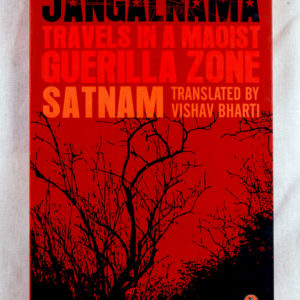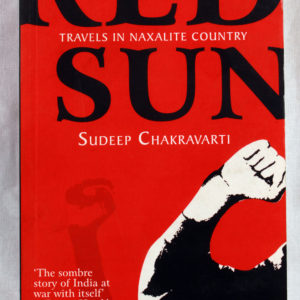Filter
Translated from the Hindi by Madhu Singh With a foreword by Angela Y. Davis
September 1970. Ramchandra Singh enters the Hardoi District Jail in Uttar Pradesh as a naxalite undertrial. Barely twenty, his life of expanding prospects—in studies, politics and love—is reduced to the horizon of a life term. The odds are stacked against the survival of his humanity and imagination, but Singh regenerates his gifts of empathy, humour, reflection and, above all, language—in a secret diary smuggled out with the help of friends.
A singular record of recent history and of individual witness, Singh’s prison diary, newly expanded, appears in English for the first time. Offering unprecedented intimacy with the everyday life of the imprisoned everyman, Singh challenges us to look without flinching and question our assumptions about crime and punishment.
Ramchandra Singh (1949–2018), of Bangarmau village in Unnao district of Uttar Pradesh, was a member of the Communist Party of India (Marxist–Leninist) Red Star, and served on its Central Committee. He was part of the editorial board of Red Star Monthly (Hindi). He passed away when this book was in press.
Madhu Singh is a professor in the Department of English and Modern European Languages, University of Lucknow. She has previously translated the scholar G.N. Devy’s work, A Nomad Called Thief, into Hindi as Ghumantu Hain Chor Nahin.
The profound insights offered in Jangalnama are the result of Satnam s close observation of the guerillas and adivasis of Bastar. Varavara Rao Maoist guerillas always on the move, always on guard living deep in the jungles of Bastar. Outlawed, demonized and hunted by the state, they are perceived with fear, incomprehension and terror by the outside world. Satnam spent two months in remarkable intimacy with the guerrillas: travelling with them, sharing their food and shelter, experiencing their lives first hand. Through his up-close and personal account of their daily lives, we register them as human, made of flesh and bone. We are persuaded to appreciate their commitment to root out oppression.
Jangalnama is not merely a travelogue recording Satnam s days in the jungle. It is a compelling argument to recognize the humanity of those in conflict with the mainstream of Indian society and to acknowledge their dream of a world free of exploitation.
In 1967, Naxalbari, a village in West Bengal, became the centre of a Mao inspired militant peasant uprising guided by firebrand intellectuals. Today, Naxalism is no longer the Che Guevara-style revolution that it was. Spread across 15 of India’s 28 states, it is one of the world’s biggest, most sophisticated extreme-Left movements, and feeds off the misery and anger of the dispossessed. Since the late 1990s, hardly a week has passed without people dying in strikes and counter-strikes by the Maoists – interchangeably known as the Naxalites – and police and paramilitary forces.
In this disturbing examination of the ‘Other India’, Sudeep Chakravarti combines political history extensive interviews and individual case histories as he travels to the heart of Maoist zones in the country: Chhattisgarh (home to the controversial state-sponsored Salwa Judum programme to contain Naxalism), Jharkhand, West Bengal, Karnataka and Andhra Pradesh (where a serving chief minister was nearly killed in a landmine explosion triggered by the Naxalites). He meets Maoist leaders and sympathizers, policemen, bureaucrats, politicians, security analysts, development workers, farmers and tribals – people, big and small, who comprise the actors and the audience in this war being fought in jungles and impoverished villages across India. What emerges is a sobering picture of a deeply divided society, and the dangers that lie ahead for India.



